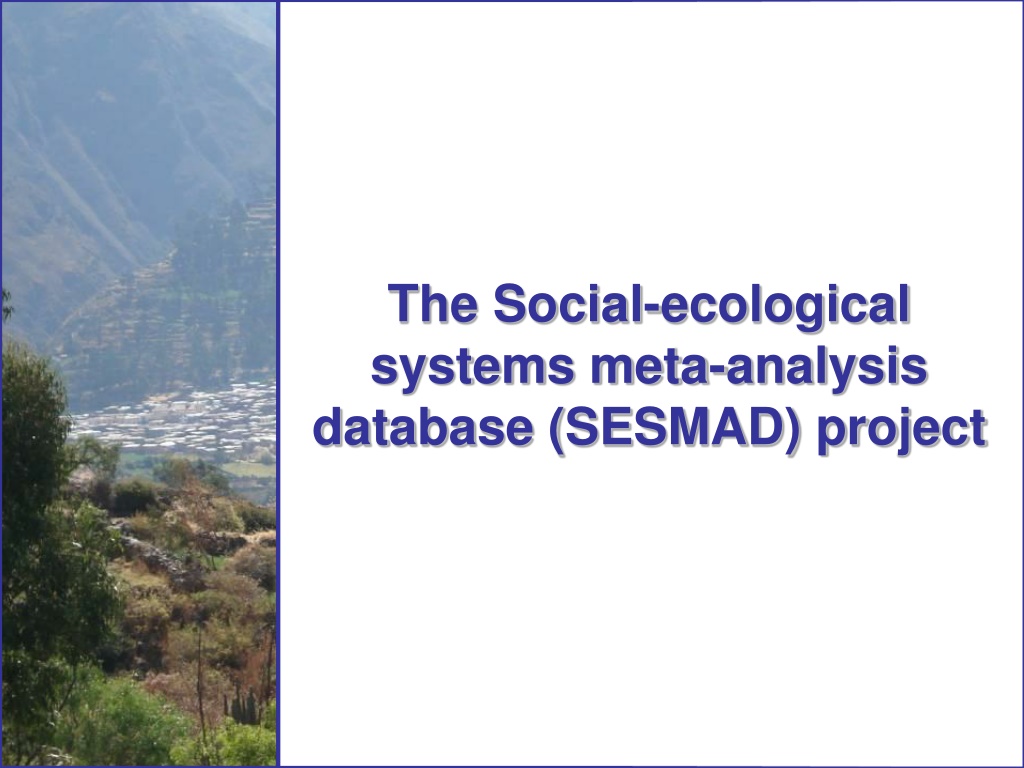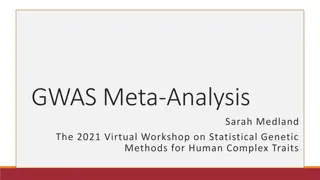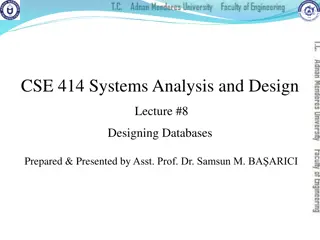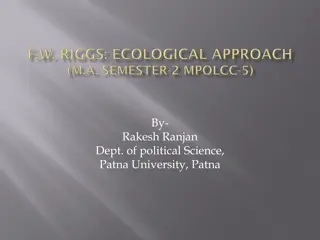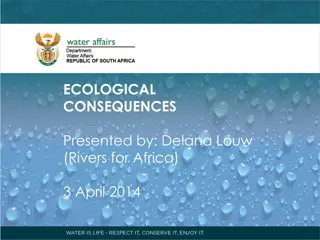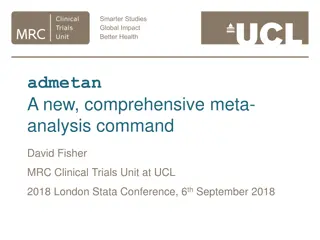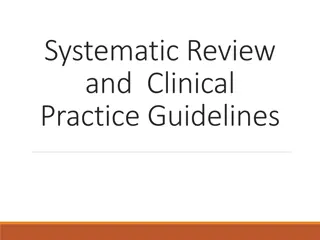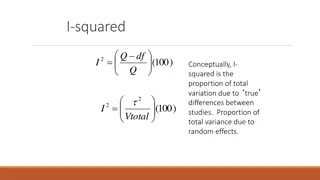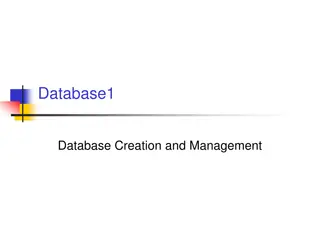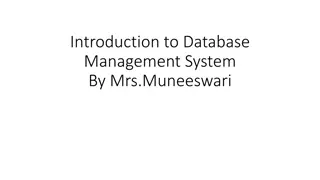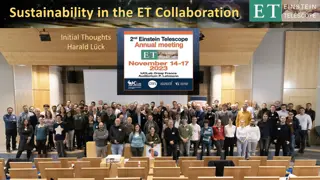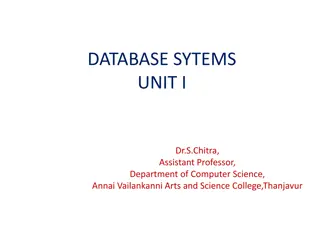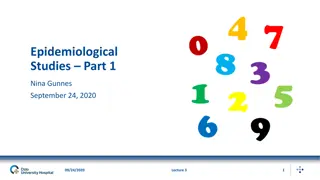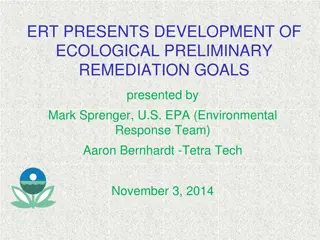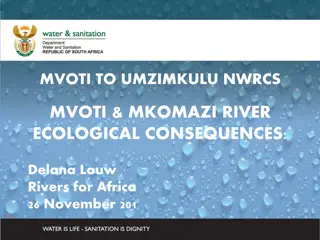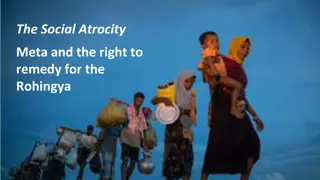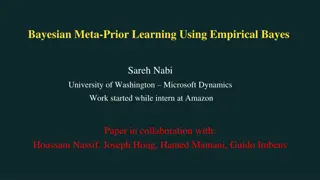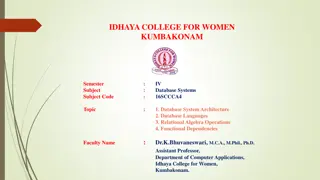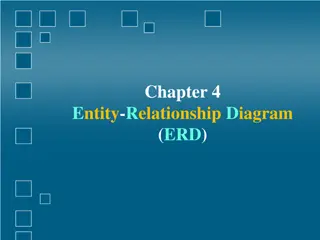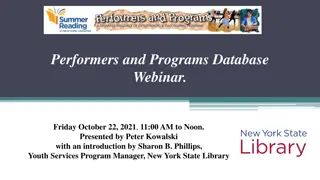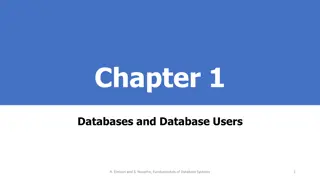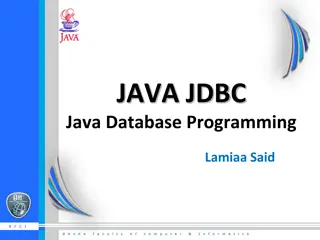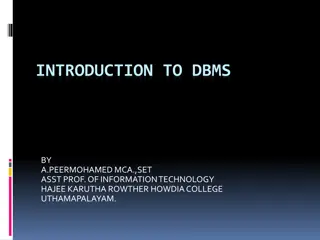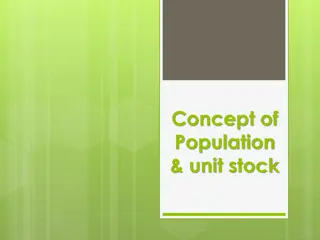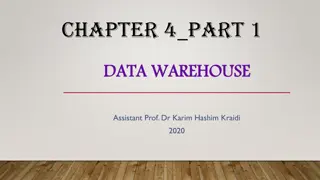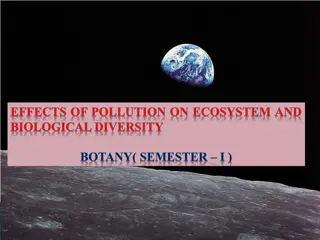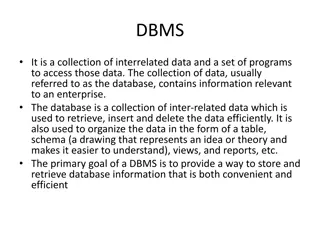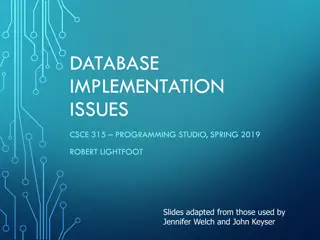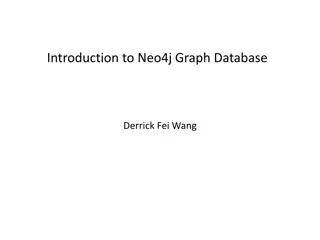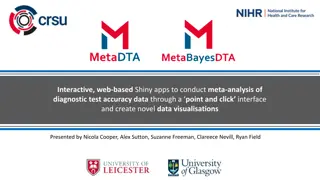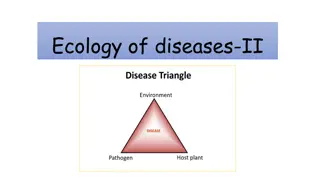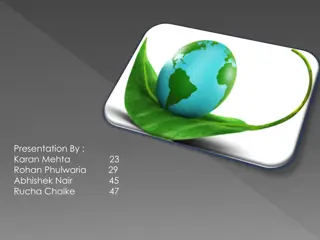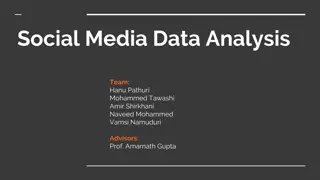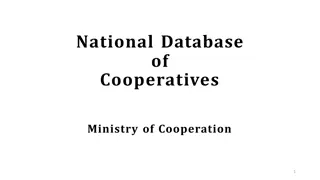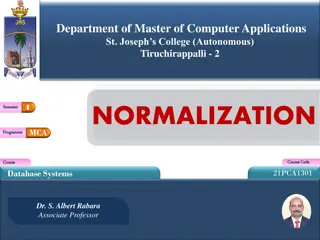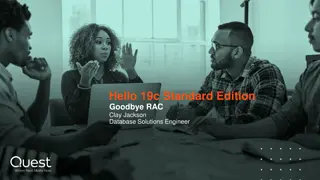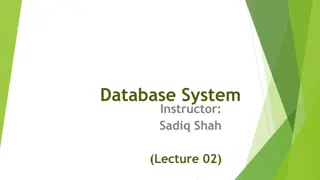SESMAD Project - Social-Ecological Systems Meta-Analysis Database
The SESMAD project aims to analyze complex social-ecological systems by addressing the challenges of identifying and analyzing numerous variables impacting resource management. The project involves scholars from various universities and utilizes a relational database with over 200 variables to model and record system components. Their approach includes extracting data from studies to measure variable values for different cases and creating a repository of interlinked cases, studies, and theories.
Download Presentation

Please find below an Image/Link to download the presentation.
The content on the website is provided AS IS for your information and personal use only. It may not be sold, licensed, or shared on other websites without obtaining consent from the author. Download presentation by click this link. If you encounter any issues during the download, it is possible that the publisher has removed the file from their server.
E N D
Presentation Transcript
The Social-ecological systems meta-analysis database (SESMAD) project
Members Dartmouth College, USA Arizona State University, USA University of British Columbia, Canada University of Alaska Fairbanks, USA U. of Minnesota, USA Michael Cox Mike Schoon Natalie Ban Chanda Meek Forrest Fleischman Gustavo Garcia-Lopez Brent Loken Frank van Laerhoven Graham Epstein Irene Perez Ibarra Louisa Evans Mateja Nenadovic Andreas Thiel Sergio Villamayor University of Puerto Rico Simon Fraser University, Canada Utrecht University, Netherlands U. of Waterloo, USA Arizona State University, USA U. of East Anglia, Australia Duke University, USA Kassel University, Germany ICTA, Spain
The problem Scholars of commons have discovered far more variables that potentially affect resource management than is possible to analyze carefully how can research be conducted in a cumulative and rigorous fashion if this many variables need to be identified in every study? (Agrawal 2003) Many case studies of environmental governance have been conducted, but with inconsistent protocols, which are not easily comparable
Approach Based on: CPR meta-analysis project; IFRI research project Social-ecological systems framework Relational database with approximately 200 variables Protocol: Extract data via content analysis from studies to measure values of these variables for a set of cases Modeling the system: SES components Recording variable values Repository of interlinked cases, studies and theories
Approach https://sesmad.dartmouth.edu/pages/intro
SESMAD projects CPR scaling up Cox, M., (2014), Understanding large social-ecological systems: introducing the SESMAD project, (see Special Issue, International Journal of the Commons, Vol. 8). o Marine protected areas Ban, N. C., T. E. Davies, S. E. Aguilera, C. Brooks, M. Cox, G. Epstein, et al. (2017), Social and ecological effectiveness of large marine protected areas, Global Environmental Change, 43, 82-91. o Small scale fisheries in Fiji Jupiter, S. D., G. Epstein, N. C. Ban, S. Mangubhai, M. Fox, and M. Cox (2017), A Social Ecological Systems Approach to Assessing Conservation and Fisheries Outcomes in Fijian Locally Managed Marine Areas, Society & Natural Resources, 1-16. o Theories in social-environmental science Cox, M., S. Villamayor-Tomas, G. Epstein, L. Evans, N. C. Ban, F. Fleischman, et al. (2016), Synthesizing theories of natural resource management & governance, Global Environmental Change, 39, 45-56. o
Interested? Contact Michael Cox: Michael.e.cox@dartmouth.edu
